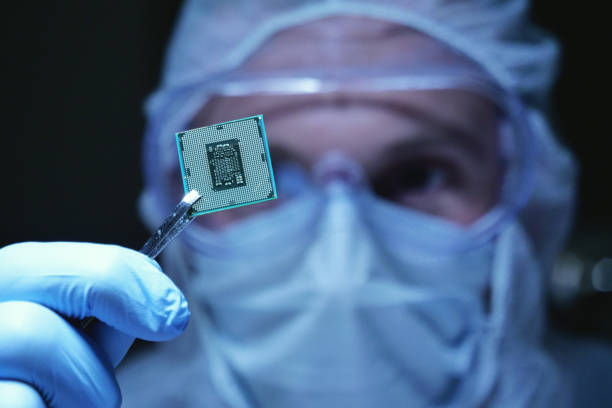The Silent Symptoms of Hemoglobinuria You Must Spot Early
Hemoglobinuria often goes undetected in its early stages because the first signs appear minor. Paying attention to urine changes, persistent tiredness, or other subtle indicators can make a big difference in preventing complications. Discover the warning signs you should never overlook to safeguard your health.
Recognizing the Early Signs of Hemoglobinuria
The initial symptoms of hemoglobinuria often manifest as subtle changes that patients may dismiss as temporary fatigue or stress-related issues. One of the most telling early signs is dark-colored urine, particularly noticeable in the morning, which may appear tea-colored, reddish-brown, or cola-colored. This discoloration occurs due to the presence of hemoglobin and can vary in intensity depending on the severity of red blood cell breakdown.
Unexplained fatigue represents another common early indicator, as the destruction of red blood cells reduces the body’s oxygen-carrying capacity. Patients frequently report feeling unusually tired after normal activities or experiencing a general sense of weakness that doesn’t improve with rest. Additionally, some individuals notice mild abdominal discomfort or back pain, particularly in the kidney area, which may come and go without apparent cause.
How to Spot Subtle Symptoms Before Progression
Identifying hemoglobinuria symptoms before they become severe requires attention to patterns and changes in daily health experiences. Many patients report experiencing symptoms in episodes, particularly at night or early morning hours, which is why the condition is often referred to as nocturnal hemoglobinuria when it follows this pattern.
Blood clot formation represents a more serious symptom that can develop as the condition progresses. Patients may notice unusual bruising, swelling in legs or arms, or experience headaches that seem different from typical tension headaches. Digestive symptoms, including difficulty swallowing, stomach pain, or erectile dysfunction in men, can also indicate advancing hemoglobinuria.
Regular monitoring of urine color and consistency becomes essential for early detection. Keeping a simple diary of symptoms, including energy levels, sleep quality, and any unusual physical sensations, can help healthcare providers identify patterns consistent with hemoglobinuria.
Understanding Key Warning Signs Not to Ignore
Certain symptoms of hemoglobinuria require immediate medical attention and should never be dismissed as minor health concerns. Severe fatigue that interferes with daily activities, particularly when accompanied by pale skin or shortness of breath, indicates significant red blood cell destruction and potential anemia.
Chest pain, severe headaches, or sudden onset of confusion may signal dangerous blood clot formation, a serious complication of hemoglobinuria that requires emergency medical intervention. Changes in kidney function, evidenced by decreased urination, swelling in the face or extremities, or persistent back pain, suggest that the condition may be affecting organ function.
Recurrent infections or slow wound healing can indicate that the immune system is compromised due to the underlying blood disorder. These symptoms often develop gradually but become more pronounced as the condition progresses without treatment.
Why Early Detection Makes a Significant Difference
Prompt identification and treatment of hemoglobinuria significantly improve long-term outcomes and quality of life for patients. Early intervention can prevent the development of serious complications, including kidney damage, blood clots, and severe anemia that may require blood transfusions.
Modern treatment approaches for hemoglobinuria include complement inhibitor therapies, which can effectively reduce red blood cell destruction and improve symptoms. When started early in the disease process, these treatments can prevent irreversible organ damage and reduce the risk of life-threatening complications.
Early detection also allows healthcare providers to implement supportive care measures, including folic acid supplementation, iron management, and vaccination protocols to prevent infections. Patients diagnosed early typically experience better treatment responses and maintain higher energy levels and overall functionality.
| Treatment Option | Provider/Facility Type | Estimated Annual Cost |
|---|---|---|
| Complement Inhibitor Therapy | Specialized Hematology Centers | $400,000 - $600,000 |
| Supportive Care Management | General Hematology Practice | $5,000 - $15,000 |
| Bone Marrow Transplant | Major Medical Centers | $200,000 - $400,000 |
Prices, rates, or cost estimates mentioned in this article are based on the latest available information but may change over time. Independent research is advised before making financial decisions.
Silent Indicators Often Going Unnoticed
Many hemoglobinuria symptoms remain unrecognized because they mimic common health complaints or develop so gradually that patients adapt to them as their new normal. Sleep disturbances, including difficulty falling asleep or frequent nighttime awakening, often correlate with episodes of red blood cell breakdown but are rarely connected to the underlying blood disorder.
Mood changes, including irritability, depression, or anxiety, can result from chronic fatigue and reduced oxygen delivery to the brain. These psychological symptoms are frequently attributed to stress or other mental health conditions rather than investigated as potential indicators of a blood disorder.
Changes in exercise tolerance or recovery time after physical activity represent another overlooked symptom. Patients may notice that activities they previously managed easily now leave them feeling exhausted or that recovery takes much longer than expected. These subtle changes in physical capacity often precede more obvious symptoms by months or years.
Regular communication with healthcare providers about any persistent changes in health, energy levels, or physical function remains essential for early detection. Patients should maintain awareness of their baseline health status and report any deviations, regardless of how minor they may seem.
This condition requires comprehensive medical evaluation and ongoing monitoring to ensure appropriate treatment and prevent complications. Working with experienced hematologists and specialized treatment centers provides patients with access to the most current diagnostic tools and treatment options available for managing hemoglobinuria effectively.
This article is for informational purposes only and should not be considered medical advice. Please consult a qualified healthcare professional for personalized guidance and treatment.





